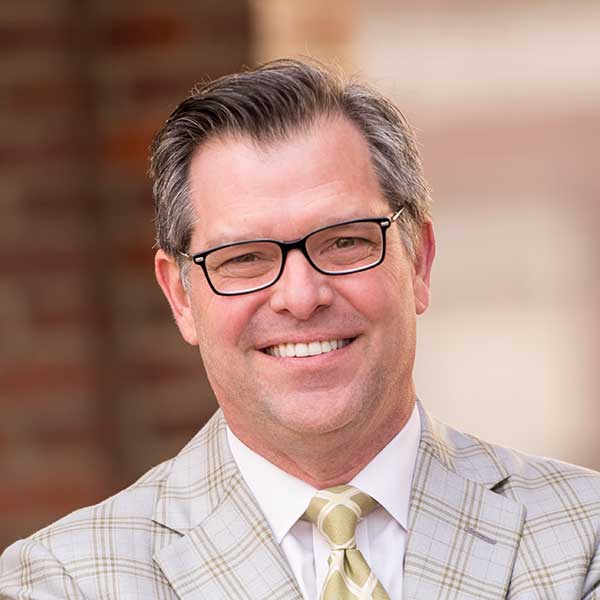Five Pointers for Classical Educators

By Keith Nix
It's easy to lose confidence and clarity in these trying circumstances. Here are five ways classical schools can excel from home.
1. Double down on mission and vision.
While times of crisis often tempt leaders to put the brakes on the principles they hold dear, in truth a crisis is the time to double down on core principles. A principle that cannot sustain stress in a crisis is no principle at all, but pretense, and pretense is dangerous any time it crops up.
The new situation is not ideal, of course, but neither was the old situation. While the pandemic has imposed constraints on all schools, classical leaders should focus on transferring our principles to a new setting. Many public schools are scrambling to know what to do, but we have a moment to cast a clear, bold vision for classical education.
Most classical schools have a “Portrait of the Graduate,” a document that captures the qualities the school aims at cultivating. Walker Percy once said, “You can get all A’s and still flunk life.” A portrait of the graduate is the school’s claim about what winning at life really means: loving God, relishing His precepts, blessing His people, enjoying His beauty. However, this can easily get lost in daily school life. When the pandemic hit and everyone was sent home, I kept coming back to our portrait. I asked parents to look over it again and said, “How might these few months help us make our students look more like the portrait?” I especially think of the opportunity to help our students see the world with compassion, and desire to be part of shalom in their generation.
2. Take advantage of new opportunities.
Many classical educators are becoming increasingly aware of the need for embodied learning in our school lives. Students experience such learning in physical education, sports, and fine arts; the “common arts,” however—cooking, gardening, car maintenance, and the like—have lately enjoyed renewed interest. This is the perfect opportunity to guide students in these activities, which are difficult to fit into a normal school day, yet are noble and profitable pursuits. How can your school provide resources to promote such Common Arts?
The pandemic has also given us space to reflect on how full our schedules have become. High school students spend thirty-five hours every week in class; many spend nearly that same amount of time on sports. The pandemic is allowing the breakneck gallop of high school life to slow to a comfortable trot. Rather than looking at quarantine as a bother, perhaps we should see it as a break. I am not arguing for slothfulness, but for taking time to think, imagine, and experience leisure.
A crisis is exactly the time to double down on core educational principles: principles are what sustain us in a crisis.
3. Encourage students to take the CLT.
Many parents have been worried by the shutdown or delay of mainstream college entry exams, fearing it will be a roadblock in their children’s college opportunities. The CLT is a practical alternative here: it has always been conducted online and remains available, and its content is far more in line with a classical curriculum (unlike conventional tests designed for Common Core). Encouraging the CLT allows students to take college entry exams in a timely way, and be tested on what they have actually been taught.
4. Give parents what they’ve always wanted.
I’ve heard it a thousand times: “I want my children to get the education I never had.” Many classical schools have created opportunities for parents to experience a little of the education their children receive, but, given the business of our lives, parents cannot always capitalize on this. With the extra hours many parents currently have, this is the perfect time to offer them a taste of the classical classroom. Invite them to a class, host a Zoom book club, or give a seminar on a classical topic.
Two weeks ago, our Academic Dean Andrew Smith hosted a Zoom discussion for parents on “Learning in Wartime” by C. S. Lewis. Ask your teachers about books or subjects they may be willing to lecture on; let parents see teachers in action. This will also give parents a clearer sense of what their sons and daughters do all day, what kind of conversations they engage in, and the challenges of participating in a robust intellectual debate.
5. Take care of your soul.
When we suddenly find ourselves with sparse schedules, there will always be a temptation to figure out some way to stay busy. There’s always work to do—but this can be a blessing or a curse. When work is a means of giving thanks to God, it is a blessing, but when it is merely the raw material by which we get ahead, it is a curse. Getting ahead is an ephemeral and illusory goal in this “life under the sun.” Some of us have seen years of getting ahead zeroed out in just the last few days.
Consider quarantine a kind of forced sabbatical. Take more time to read, more time to write, more time to pray. Eat well. Exercise. And when you finally return to your schools and offices and the daily bread of routine, you can thank God all this is over, and be content. He may ask us to do it all again.
___________________________________________________________________________________
If you enjoyed this post, you might also enjoy our weekly podcast, Anchored, where our founder Jeremy Tate interviews leading educators, intellectuals, and advocates.
Published on 17th April, 2020.